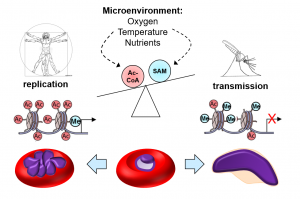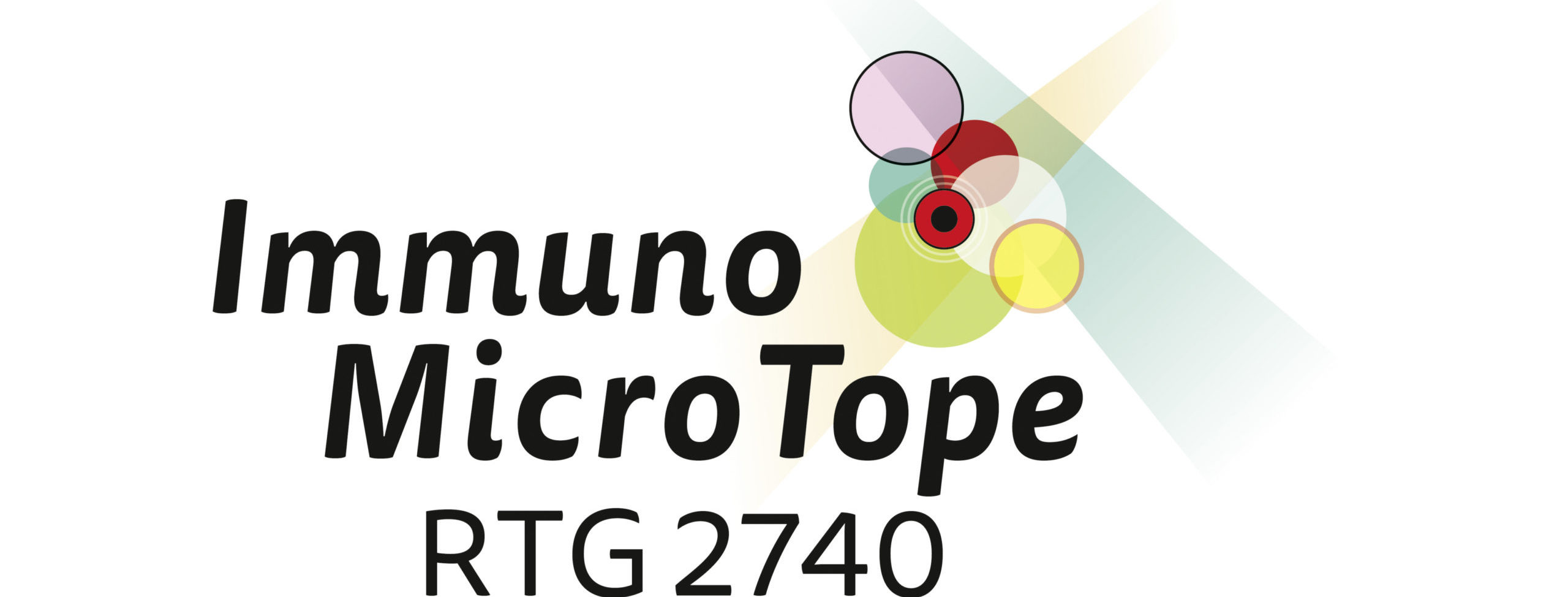B1: Molecular mechanisms linking metabolism and chromatin remodelling in the human malaria parasite Plasmodium falciparum
B1: Molecular mechanisms linking metabolism and chromatin remodelling in the human malaria parasite Plasmodium falciparum
Human malaria is caused by the protozoan parasite Plasmodium (P.) falciparum, which is transmitted by a mosquito and replicates inside of erythrocytes. In order to avoid the immune system, the parasites export variable virulence factors to the host cell membrane, which enable the infected cells to cytoadhere to the vasculature, preventing splenic clearance. Some of the parasites differentiate into male or female gametocytes, which are picked up by a new mosquito. For optimal transmission to the mosquito vector, the parasites need to balance virulence factor expression and replication rate with the rate of differentiation into transmission stages. These processes are governed by post-translational histone modifications and can be influenced by various environmental stimuli, such as drugs or metabolic changes in the host plasma in response to the infection. However, it is unclear how the parasites sense environmental changes and how chromatin remodelling to adjust the gene expression program and parasite phenotype is achieved as a consequence.
This project is based on the hypothesis that microenvironment-induced metabolic reprogramming of P. falciparum parasites results in epigenetic changes that redirect the transcriptional program and development of the parasite. Therefore, we will investigate how different conditions that P. falciparum parasites may encounter in the human host during severe disease episodes (e.g. fever, lactic acidosis or drugs) influence the parasite’s metabolism, with particularly attention to precursors of histone modifications, and how this correlates with the transcriptomic and epigenomic footprint. In this project we will apply a multi-OMICS approach, integrating RNAseq and ChIPseq analyses with metabolomics and proteomics measurements in parasites exposed to different environmental stimuli. In previous studies we have identified novel candidate regulators of chromatin modifications. By generating transgenic parasites and using specific inhibitors, we will functionally investigate the role of these proteins in the adaptation of P. falciparum to environmental changes.

Supervisor
PD Dr. rer. nat. habil. Michaela Petter
91054 Erlangen

